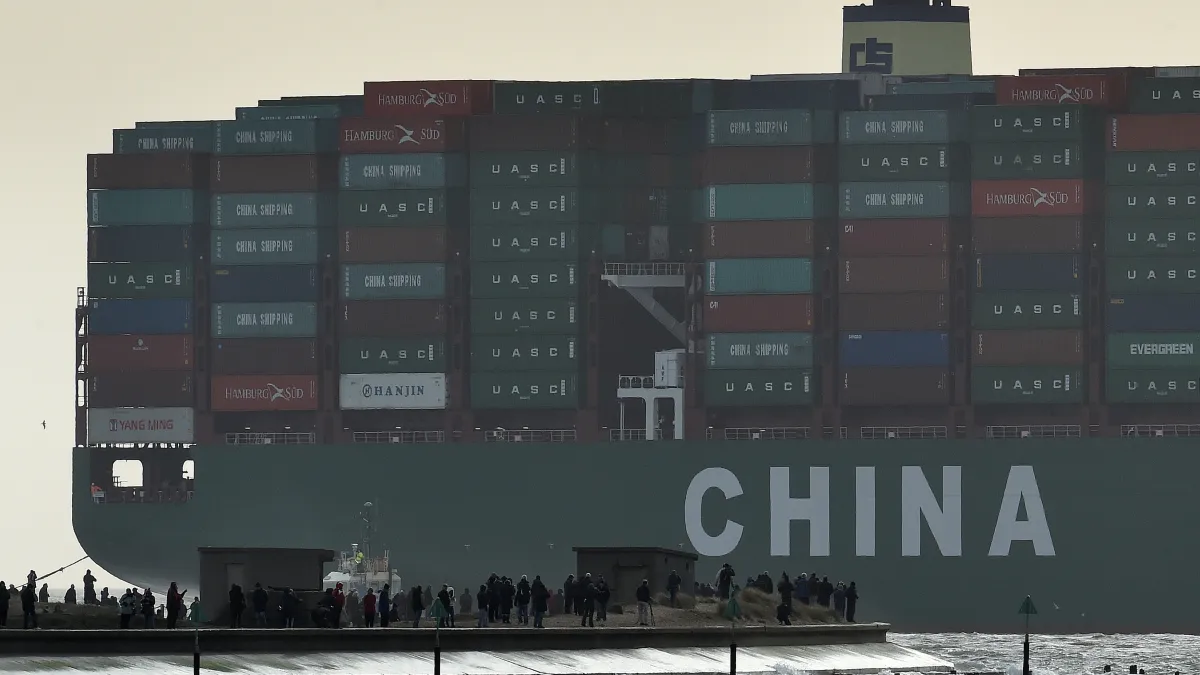
President Trump signed a proclamation on Friday stating that he will impose a 25% tariff on imported medium- and heavy-duty trucks and a 10% tariff on imported buses starting on November 1.
The tariffs are being imposed under Section 232 of the Trade Expansion Act of 1962, which gives the president broad authority to tax imports based on national security. Trump declared that at current levels, truck and bus imports “threaten to impair the national security of the United States” since they contribute to the erosion of the industrial base needed for military production and economic vitality.
“In my judgment,” Trump proclamation says, “the actions in this proclamation will, among other things, strengthen supply chains; bolster industrial resilience; create high-quality jobs that will expand the skilled workforce in the United States; and increase domestic capacity utilization and United States-produced market share for [medium- and heavy-duty vehicles], certain [medium- and heavy-duty vehicle parts], and buses.”
Trump had previously announced the truck tariff in September, with a start date of October 1. After that announcement, the Chamber of Commerce came out against the tariff. Per Reuters, the group noted that the largest exporters of trucks to the U.S. are Mexico, Canada, Japan, Germany, and Finland, “all of which are allies or close partners of the United States posing no threat to U.S. national security.”
Easing the tariff burden? Even as Trump rolls out more tariffs and threatens to raise existing ones, some of his earlier import levies are being watered down, The Wall Street Journal’s Gavin Bade and Jesse Newman report. The new truck tariffs are being partially offset by credits that U.S. automakers can use to reduce the cost of domestically assembled vehicles that incorporate foreign parts. The tariffs relief credits will now be available for three more years, through 2030 instead of 2027.
The White House is also exempting a range of products and materials from tariffs, which are summarized in a list referred to as Annex II, the Journal reports. Another list, Annex III, is being discussed, with a focus on goods that cannot be grown, mined or otherwise produced in the U.S. Products that could be included on the list include coffee, spices, pharmaceutical ingredients, metals and some aircraft parts.
Nick Iacovella of the Coalition for a Prosperous America, a protectionist group that advises the Trump administration, told the Journal that tariff exemptions are compatible with the effort to maintain and enhance U.S. productive capacity. “It doesn’t make sense to impose tariffs on products the U.S. doesn’t have the capability to produce,” he said.
No fiscal help: The Trump administration has claimed that surging tariff revenues will help the federal government make essential payments during the government shutdown, but so far that hasn’t happened.
“We’re going to take some of that tariff money that we made, we’re going to give it to our farmers, who are, for a little while, going to be hurt until the tariffs kick in to their benefit,” Trump said last month. Other potential beneficiaries discussed by Trump and White House officials include the military and nutrition assistance programs.
However, as Politico’s Daniel Desrochers and Jennifer Scholtes report, the administration’s ability to direct tariff revenues to their desired ends is extremely limited. Tariffs are import taxes paid by U.S. businesses and collected by the U.S. Treasury, and Congress is the branch of government that determines how to use the funds, leaving the administration few options to deploy the revenues as it sees fit.
Sen. Jerry Moran, a senior Republican on the Appropriations Committee, told Politico that the Constitution clearly gives the legislature the authority to levy taxes and spend revenue. “So while I’m certainly interested in the White House and President Trump’s suggestions,” he said, “there’s the necessity of Congress acting to implement that suggestion, if that’s the conclusion of Congress.”
Democratic Sen. Brian Schatz said that the administration is finding out that the Constitution imposes restraints. “They’re learning that just declaring something to be the case doesn’t make it true,” he said.
Republican Sen. John Kennedy agreed that Congress would have to authorize any use of the tariff revenues — though Trump may have other plans. “That doesn’t mean the president’s not going to do it and then sort out the process later,” Kennedy told Politico. “I mean, you see what I see. And I see what you see.”